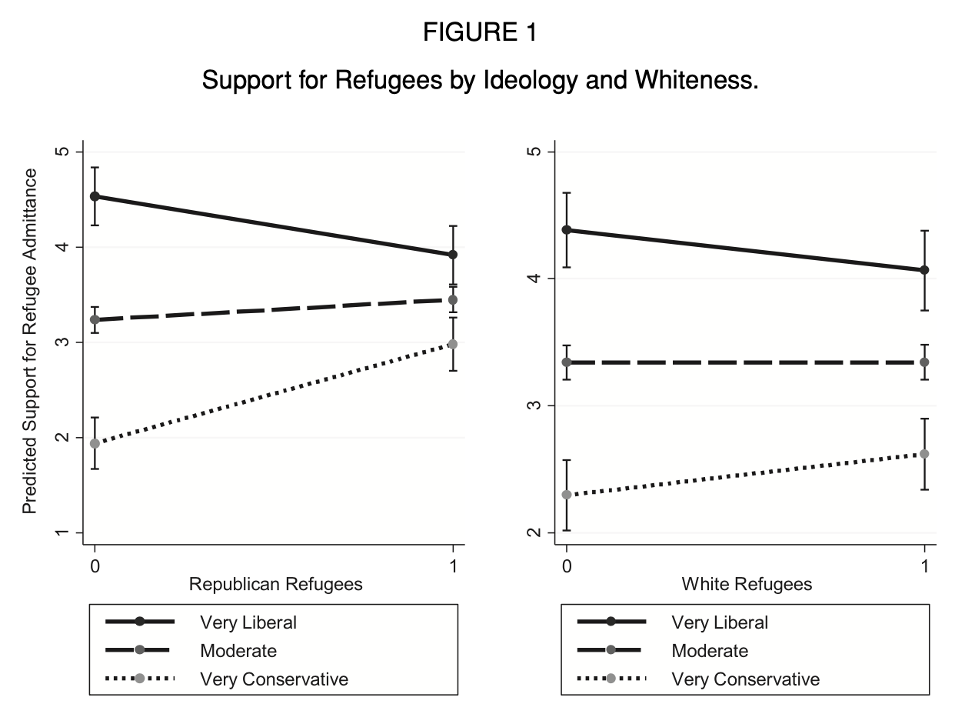Partisanship and Support for Immigration
Here’s a neat new piece in Social Science Quarterly by Richard Hanania. The set-up:
I conducted a preregistered study with a representative sample of white Americans. The survey asked them how open they would be to accepting certain refugees into the United States. The characteristics of the refugees were changed along the following three dimensions:
Race: Refugees were either from the white country of Ukraine, or the predominately non-white country of Venezuela. Although one might suspect that this treatment would invoke stereotypes about Venezuela and Ukraine instead on non-white and white people as such, American ignorance about most of the rest of the world makes this unlikely. Luckily, the study was carried out before Ukraine jolted to the top of the headlines due to Trump’s impeachment.
Voting behavior: Respondents were told that the new migrants would settle in Florida, a swing state, and either vote Democrat, like most immigrant groups, or vote Republican, due to previous experience with socialism. Both these stories seem plausible enough.
Skill level: Refugees were said to be either high- or low-skilled, that is able to pull their own weight economically or likely to rely on government assistance.
Hanania’s punchline:
Race had no statistically significant effect on any group. Both conservatives and liberals, however, changed their views based on how they would vote. Only conservatives were affected by whether the refugees were said to be high-skilled and therefore presumably beneficial to the economy, or low-skilled and likely to rely on government assistance. Figure 1 below shows how partisanship, but not necessarily race, matters. The gap between the groups “very liberal” and “very conservative” in support for immigration is cut by around two-thirds when refugees are said to support Republicans instead of Democrats!
More striking to me, though, is this graph.

Notice: Not only do very liberal respondents like white migrants more than the very conservative do; very liberal respondents like Republican migrants more than very conservative ones do! To my mind this is strong evidence that Republicans’ core prejudice is not racism but xenophobia. They’re even relatively hostile to immigrants on their own side of the aisle.
No wonder Asians are so Democratic. Given their traditional values and high income, you’d expect them to be Republicans. But Asians correctly sense that Democrats respect them more.
Years ago, I proposed a simple voting model that I call the Respect Motive. Long story short: “People vote for whoever respects them more.” As long as liberals care more about Republican migrants than conservatives, expect migrant Republicans to be few and far between.
The post appeared first on Econlib.

